![Centazzo, Andrea: U.S.A. Concerts [VINYL] (Ictus) Centazzo, Andrea: U.S.A. Concerts [VINYL] (Ictus)](https://www.teuthida.com/productImages/misc4/33441.jpg)
Five concerts from percussionist and Ictus label leader Andrea Centazzo's 1978 US tour, performing in a duo with percussionist Alex Cline; in a trio with LaDonna Smith (violin) and Davey Williams (guitar); and in a quintet with John Zorn (saxophone), Tom Cora (cello), Toshinori Kondo (trumpet), Eugene Chadbourne (guitar) and Polly Bradfield (violin).
Out of Stock
Quantity in Basket: None
Log In to use our Wish List
Shipping Weight: 24.00 units
Sample The Album:
Andrea Centazzo-percussion, composer
Polly Bradfield-violin
Eugene Chadbourne-guitar
Tom Cora-cello
Toshinori Kondo-trumpet
John Zorn-saxophone
Jack Wright-saxophone
Davey Williams-guitar, banjo
LaDonna Smith-violin, viola, voice
Alex Cline-percussion
Click an artist name above to see in-stock items for that artist.
UPC: 769791984370
Label: Ictus
Catalog ID: ICTUSRE 005LP
Squidco Product Code: 33441
Format: LP
Condition: New
Released: 2023
Country: Italy
Packaging: LP
Tracks 1, 2 and 7 recorded at WKCR Radio in New York City, on November 7th, 1978.
Tracks 3, 4, 5 and 6 recorded in Jackson, Mississippi on November 19th, 1978, by Bruce Bidlack.
Originally released in 1978 as a vinyl LP on the Ictus label with catalog code ICTUS 0018,
"The Italian Ictus imprint was founded in 1976 by percussionist and composer, Andrea Centazzo, and his wife, Carla Lugli. Running for just under a decade, until relaunching during the mid-2000s, the label produced a couple of dozen highly celebrated releases, the majority of which loosely fall under the banner of free jazz.
Ictus's second batch of releases from the label's historic archives logically begins with Andrea Centazzo's U.S.A. Concerts, out of print on vinyl for the majority of the time since. U.S.A. Concerts draws on the same rough period when Centazzo was working in the United States for Environment for Sextet, which was reissued in the previous batch (ICTUSRE 004LP), and features many of the same players -- Polly Bradfield on violin, Eugene Chadbourne on guitar, Tom Cora on cello, Toshinori Kondo on trumpet, and John Zorn on saxophone -- in different configurations. In fact, the first, second, and seventh tracks -- "Sextet Improvisation", "Duet Improvisation N. 1", "Duet Improvisation N. 4" -- were all recorded on the same day at the same location as the aforementioned album: WKCR Radio in New York on November 7, 1978.
Beginning with the brilliant textural and tonal explorations of the full ensemble encountered in "Sextet Improvisation", the album quickly moves toward quieter and more restrained investigations of roughly similar ground, moving through a series of duo improvisations between the percussionist and Eugene Chadbourne, Tom Cora, and the under-celebrated saxophonist, Jack Wright, whose howling horn is transformed to otherworldly effect by the reverberance of the space within which he works.
From here, Centazzo embraces the trio form with an improvisation with two more under-celebrated figures from the American scene -- Davey Williams playing guitar and banjo, and LaDonna Smith on violin, viola, and voice -- capturing a performance in Jackson, Mississippi on November 19, 1978, during which the three fire responsive statements that hang like barbs in the spacious air, before conceding the LP with a brilliant suite of duos with Toshinori Kondo, Williams, and Smith.
Offering incredible insight into Centazzo's unique sensibility, as well as into the work of a new generation of stunning improvisers as they emerged at the tail end of the '70s, before going on to help define the '80s free jazz sound, U.S.A. Concerts is a crucial artifact of free music at the juncture; fire on the boundaries of outright noise."-Ictus
Artist Biographies
• Show Bio for Andrea Centazzo "In an artistic career that spans over twentyfive years, Andrea Centazzo has given more than 1000 concerts and live performances in Europe and the United States, as well as having appeared and performed on numerous radio and television broadcasts. He has recorded over 60 LP's and CD's, and has authored 350 compositions and eight musicology books. His musical endeavors and creative expression range from the sublime to the passionate, from lyric opera to orchestral symphony and solo percussion. He has performed in momentous festivals as soloist of his own compositions or as conductor of symphonic orchestras. Centazzo is a pioneer of contemporary percussion. In the early years, he performed with some of the greatest avant-garde soloists and composers, including J. Zorn, S. Bussotti, S. Lacy, D. Cherry, A. Mangellsdorf, E. Parker, etc. Deservedly, Centazzo has received a number of prestigious music and video Awards (Premio Speciale della Critica Discografica Italiana, USA Downbeat Poll, International Video Festival Tokyo, Prix Arcanal of French Culture, etc.) A doctoral graduate in musicology, he has taught seminars and workshops in Europe and the USA. Since 1983, Centazzo has been dedicated to creating multi-media experiences. This expansion began with an exhibition of his scores rendered as painted ideograms, and evolved into video performances combining both live performance with video images. These efforts culminated in his directing award-winning videos and films. As a soundtrack composer, he unites traditional instrumentation with current technological advances in musical expression through sampling machines and computers. These efforts give a new perspective to the fusion of sound and image through his theatre, television, video, CD rom, and feature film scores. The music of A.C. captures and expresses the rhythm and pulse of life by synthesizing the mystery of Oriental percussive vibrations with the timbral harmonic understanding of contemporary music and the soul of jazz and rock post-culture. A.C. continues to contribute his unique artistic vision to the evolution of contemporary culture." ^ Hide Bio for Andrea Centazzo • Show Bio for Polly Bradfield "Polly Bradfield is an American violinist from the New York City free improvisation scene of the late 1970s and early 1980s. Her closest musical associates were Eugene Chadbourne and John Zorn. She also played on records by William Parker and Frank Lowe. Her music career ended when she moved to California sometime in the 1980s. Her last appearance on record was on Zorn's The Big Gundown in 1986. "I began playing music when I was 8 or 9. First piano, then violin. I preferred to play classical literature, but I started improvising by playing piano in a high school stage band. I studied jazz in college after hearing Cecil Taylor I started developing a style of improvisation on the piano, playing with many different musicians and performing occasionally. When I met Eugene Chadbourne and John Zorn on moving to New York, I quit playing the piano and concentrated on the violin. My playing really changed and so did my attitudes about music and improvising..." (from Bradfield's own liner notes on the back of her Solo Violin Improvisations LP) In the same liner notes, she lists her musical inspirations: Paganini, Bartók, Ives, Ligeti, Django Reinhardt, Stuff Smith, Eddie South, Joe Venuti, The Sacred Guitar and Violin music of the Modern Aztecs, Jean Carignan, Swedish fiddle music, and Cajun string bands. (She also thanks Zorn and Chadbourne for their effect on her music.) In 1979 she released an LP on Chadbourne's Parachute label called Solo Violin Improvisations. The cover shows a photo of a young girl, presumably Bradfield as a child, sawing a branch off a tree, a pun on violin playing described as "sawing". The album contains more silence than sawing, though; her scrapes, scratches, plunks, and occasional notes on the violin are often separated by long stretches of it. Her radically still, non-discursive, Cageian style on this little known LP foreshadows later trends in free improvisation. Eugene Chadbourne describes the album as "a controlled masterwork of severely intense playing" . In her liner notes, Bradfield writes "The music on this record is all acoustic violin. Usually I use an amplifier when performing, but I wanted my first solo recording to be acoustic. I felt it was a small way to pay homage to the instrument's long and diverse history which began long before electricity was discovered." " ^ Hide Bio for Polly Bradfield • Show Bio for Eugene Chadbourne "A seemingly endless -- and endlessly eclectic -- series of releases made the innovative guitarist Eugene Chadbourne one of the underground community's most well-known and well-regarded eccentrics. Born January 4, 1954 in Mount Vernon, NY, Chadbourne was raised in Boulder, CO, by his mother, a refugee of the Nazi death camps. At the age of 11, the Beatles inspired him to learn guitar; later exposure to Jimi Hendrix prompted him to begin experimenting with distortion pedals and fuzzboxes. Ultimately, however, he became dissatisfied with the conventions of rock and pop, and traded in his electric guitar for an acoustic one, on which he began to learn to play bottleneck blues. Perhaps Chadbourne's most significant formative discovery was jazz; initially drawn to John Coltrane and Roland Kirk, he later became an acolyte of the avant excursions of Derek Bailey and Anthony Braxton. Despite the huge influence music exerted over his life, however, Chadbourne first studied to become a journalist, but his career was derailed when he fled to Canada rather than fight in Vietnam; only President Jimmy Carter's declaration of amnesty for conscientious objectors allowed the vociferously left-wing Chadbourne to return to the U.S. in 1976, at which time he plunged headlong into the New York downtown music scene. After releasing his 1976 debut, Solo Acoustic Guitar, he began collaborating on purely improvisational music with the visionary saxophonist John Zorn and the acclaimed guitarist Henry Kaiser. Quickly, Chadbourne carved out a singular style, comprised of equal parts protest music, free improvisation, and avant-garde jazz, topped off with his absurd, squeaky vocals. A complete list of Chadbourne's countless subsequent collaborations and genre workouts is far too lengthy and detailed to exhaustively document, although in the early '80s he garnered some of his first significant attention as the frontman of Shockabilly, a demented rockabilly revisionist outfit which also featured the well-known producer Kramer. Following the group's breakup, Chadbourne turned to his own idiosyncratic brand of country and folk, accurately dubbed LSD C&W on a 1987 release, the same year he joined the members of Camper Van Beethoven for a one-off covers project. In addition, he recorded with artists ranging from Fred Frith and Elliott Sharp to Evan Johns and Jimmy Carl Black, the original drummer in the Mothers of Invention; in between, he continued exploring unique styles inspired by music from the four corners of the globe, all the while issuing a seemingly innumerable string of records, most of them on his own Parachute label." ^ Hide Bio for Eugene Chadbourne • Show Bio for Tom Cora "Thomas Henry Corra (September 14, 1953 - April 9, 1998), better known as Tom Cora, was an American cellist and composer, best known for his improvisational performances in the field of experimental jazz and rock. He recorded with John Zorn, Butch Morris, and The Ex, and was a member of Curlew, Third Person and Skeleton Crew. Tom Cora was born in Yancey Mills, Virginia, United States. He made his musical debut as drummer on a local television program and in the mid-1970s he played guitar for a Washington, D.C. jazz club house band. He took up the cello while an undergraduate at the University of Virginia and studied with cellist Pablo Casals' student Luis Garcia-Renart and later with vibraphonist Karl Berger. During this time he formed his own group, The Moose Skowron Tuned Metal Ensemble and began constructing instruments for it. In 1979 Cora moved to New York City where he worked with Shockabilly guitarist Eugene Chadbourne, introducing the cello to the honky tonk circuits of North America. He performed at improvising clubs and venues in New York with John Zorn, Fred Frith, Andrea Centazzo, Butch Morris, Wayne Horvitz, David Moss, Toshinori Kondo and others. Cora also collaborated with George Cartwright and Bill Laswell which led to the formation of the art rock band Curlew in 1979 . Cora remained with Curlew for over ten years and appeared on five of their albums. In 1982 Tom Cora and Fred Frith formed Skeleton Crew, an improvising rock and jazz band best known for their live performances where they played various instruments simultaneously. Cora and Frith were each one-man bands on stage and for their act, Cora constructed musical contraptions he could play with his feet. The band existed for five years during which time they toured Europe, North America and Japan extensively. They made two studio albums, Learn to Talk (1984) and The Country of Blinds (1986), the latter with Zeena Parkins who had joined the band in 1984. In October 1983 Skeleton Crew joined Duck and Cover, a commission from the Berlin Jazz Festival, for a performance in West Berlin, followed by another in February 1984 in East Berlin. Cora was also a member of the improvising trio Third Person, formed in 1990 as a live collaboration with percussionist Samm Bennett and a "third person" who changed from concert to concert. Two CDs of some of their performances were released, The Bends in 1991 (with "third persons" Don Byron, George Cartwright, Chris Cochrane, Nic Collins, Catherine Jauniaux, Myra Melford, Zeena Parkins, and Marc Ribot) and Luck Water in 1995 (with "third person" Kazutoki Umezu). Cora performed with a number of other bands, including Nimal with Momo Rossel and post-rock quartet Roof. In 1990, he played two concerts with Dutch anarcho-punk band, The Ex, and the success of this collaboration resulted in Cora performing hundreds of concerts with The Ex and appearing on two of their CDs. In 1995 in The Netherlands, Cora and Frith collaborated, as Skeleton Crew, on Etymology, a CD-ROM sound sample library of sonic sounds and wire manipulations. Tom Cora died of malignant melanoma at the age of 44 in a hospital in the south of France, where he lived with his wife, singer Catherine Jauniaux, and their son, Elia Corra." ^ Hide Bio for Tom Cora • Show Bio for Toshinori Kondo "Toshinori Kondo (December 15, 1948 in Ehime Prefecture) is an avant-garde jazz and jazz fusion trumpeter. Kondo attended Kyoto university in 1967, and became close friends with percussionist Tsuchitori Toshiyuki. In 1972 the pair left university, and Toshiyuki went on to work with Peter Brook, while Kondo joined Yosuke Yamashita. In 1978 he moved to New York, and began performing with Bill Laswell, John Zorn, Fred Frith, and Eraldo Bernocchi. A year later he released his first recording, toured Europe with Eugene Chadbourne, and collaborated with European musicians such as Peter Brotzman. Returning to Japan, he worked with Ryuichi Sakamoto, Kazumi Watanabe, and Herbie Hancock. In the mid-1980s he began focusing on his own career, blending his avant-garde origins with electronic music. In 2002, he worked on an international peace festival in Hiroshima after being approached by the Dalai Lama about organizing one. He is a former member of Praxis. Kondo cooperated with Bill Laswell to make the album Inamorata in 2007. He founded the band Kondo IMA in 1984. Kondo IMA achieved commercial success but moved to Amsterdam to be alone and to start "Blow the Earth" in 1993. They started "Blow the Earth in Japan" in the summer of 2007 and ended in the autumn of 2011. The film Blow the Earth in Japan is his first experience as a film director." ^ Hide Bio for Toshinori Kondo • Show Bio for John Zorn "John Zorn (born September 2, 1953) is an American composer, arranger, producer, saxophonist, and multi-instrumentalist with hundreds of album credits as performer, composer, and producer across a variety of genres including jazz, rock, hardcore, classical, surf, metal, klezmer, soundtrack, ambient, and improvised music. He incorporates diverse styles in his compositions which he identifies as avant-garde or experimental. Zorn was described by Down Beat as "one of our most important composers". Zorn established himself within the New York City downtown music movement in the mid-1970s performing with musicians across the sonic spectrum and developing experimental methods of composing new music. After releasing albums on several independent US and European labels, Zorn signed with Elektra Nonesuch and received wide acclaim with the release of The Big Gundown, an album reworking the compositions of Ennio Morricone. He attracted further attention worldwide with the release of Spillane in 1987, and Naked City in 1989. After spending almost a decade travelling between Japan and the US he made New York his permanent base and established his own record label, Tzadik, in the mid-1990s. Tzadik enabled Zorn to maintain independence from the mainstream music industry and ensured the continued availability of his growing catalog of recordings, allowing him to prolifically record and release new material, issuing several new albums each year, as well as promoting the work of many other musicians. Zorn has led the hardcore bands Naked City and Painkiller, the klezmer/free jazz-influenced quartet Masada, composed over 600 pieces as part of the Masada Songbooks that have been performed by an array of groups, composed concert music for classical ensembles and orchestras, and produced music for opera, sound installations, film and documentary. Zorn has undertaken many tours of Europe, Asia, and the Middle East, often performing at festivals with many other musicians and ensembles that perform his diverse output. Zorn's compositions cross many genres and he has stated "All the various styles are organically connected to one another. I'm an additive person-the entire storehouse of my knowledge informs everything I do. People are so obsessed with the surface that they can't see the connections, but they are there." For Zorn "Composing is more than just imagining music-it's knowing how to communicate it to musicians. And you don't give an improviser music that's completely written out, or ask a classical musician to improvise. I'm interested in speaking to musicians in their own languages, on their own terms, and in bringing out the best in what they do. To challenge them and excite them." " ^ Hide Bio for John Zorn • Show Bio for Jack Wright "Jack Wright was born Pittsburgh PA in 1942 and grew up around Philadelphia and Chicago. He began playing saxophone in 1952, with private instruction; also singing in groups large and small through 1964, including a blue grass trio (playing washtub bass), which recorded an album, "Undertaking Bluegrass." After this he ceased playing music. He attended Lafayette College in Easton PA, where he studied European history and literature and graduated 1964; Johns Hopkins University, MA in European history, 1972; taught history at CCNY in NY and then Temple U. 1967-72, after which he left the academic world. In this latter period he was involved in left politics, organizing mainly on a community level, and began to become involved with music again. Described twenty years ago as an "undergrounder by design," Jack Wright is a veteran saxophone improviser based mainly in Philadelphia. He has played mostly on tour through the US and Europe since the early 80s in search of interesting partners and playing situations. Now at 72 he is still the "Johnny Appleseed of Free Improvisation," as guitarist Davey Williams called him in the 80s, on the road as much as ever. And he continues to inspire players outside music-school careerdom, playing sessions with visiting and resident players old and new. His partners over the years are mostly unknown to the music press, and too numerous to mention. He's said to have the widest vocabulary of any, including leaping pitches, punchy, precise timing, sharp and intrusive multiphonics, surprising gaps of silence, and obscene animalistic sounds. A reviewer for the Washington Post said, "In the rarefied, underground world of experimental free improvisation, saxophonist Jack Wright is king"." ^ Hide Bio for Jack Wright • Show Bio for Davey Williams "Davey Williams (born 1952) is an American free improvisation and avant-garde music guitarist. In addition to his solo work, he has been noted for his membership in Curlew and his collaborations with LaDonna Smith. Williams began on guitar at age 12. He played in rock bands in high school, and studied with blues musician Johnny Shines from the late 1960s until 1971. Early in the 1970s Williams played in the University of Alabama B Jazz Ensemble and the Salt & Pepper Soul Band. He also started working with LaDonna Smith around this time, and founded a musical ensemble/recording project called Transmuseq. He toured the U.S. and Europe in 1978. Early in the 1980s he worked in a blues band called Trains in Trouble, then joined Curlew in 1986, who released several albums on Cuneiform Records through the 1990s. In the 1980s he also worked with Col. Bruce Hampton and OK, Nurse, and in the early 1990s played in a punk rock band called Fuzzy Sons. Concomitantly with Fuzzy Sons, Williams played in an improvisational three-piece called Say What?, and worked with Jim Staley and Ikue Mori. Williams has appeared live at some 1,500 concerts worldwide. Williams co-founded The Improviser, a journal of experimental music, in 1981. He has also worked as a music critic for the Birmingham News and published freelance criticism elsewhere." ^ Hide Bio for Davey Williams • Show Bio for LaDonna Smith "LaDonna Smith, violinist and violist is dedicated to the international new music scene since 1978.. An active performer,educator, editor, and producer of the improvisor, she has been an avid warrior, promoting the improvisational arts, and keeping the music alive in the Southern Eastern United States. From touring the world, producing and hosting concerts and performance, the Birmingham Improv Festival, the improvisor festival of 2010, a month long festival held simultaneously in five different cities across the U.S.A, celebrating the 30 year anniversary of the international journal of free improvisation, she has hosted performers from Sweden, Germany, Belgium, the Netherlands, Italy, France, England, Russia and Ukraine, as well as Japan and Australia for concerts, workshops, and residencies in Alabama, as well as a host of regional and national participants in music, theatre, and dance. As a performer, LaDonna has created a style of improvisation that is uniquely personal. Alternating classical and extended techniques,she explores her instrument, painting scenarios and sound pictures as she plays. She has performed at practically every major improvisation festival and many of the New Music Festivals. She has toured North America & Europe on numerous occasions, playing solo or in collaboration with others, including Misha Feigin, Sergey Letov, Evan Parker, Roger Turner, John Russell, Gunter Christman, John Oswald, and many others. . Her travels have taken her to the former USSR, Siberia, China, Japan, and India. Her longest musical relationship remains steadfast with Alabama guitarist, Davey Williams. Together, they have toured North America and Europe many times as Trans Duo. As musical partners, they maintain their own recording label, TransMuseq, and also co-edited the improvisor, the international journal of free improvisation, printed eleven editions & published on the web for 30 years." ^ Hide Bio for LaDonna Smith • Show Bio for Alex Cline "Alex Cline (born January 4, 1956) is an American jazz drummer. Born in Los Angeles, California, Cline began playing drums with his twin brother, guitarist Nels Cline, at the age of 11. Their first band was called Homogenized Goo and included David Hirschman on guitar. Alex Cline began a musical association with woodwind artist Jamil Shabaka in 1976 as "Duo Infinity". In 1977, he became a member of Vinny Golia's group as well as the Julius Hemphill Trio (along with Baikida Carroll), formed the electric improvisational trio Spiral (with brother Nels and synthesizer player and multi-instrumentalist Brian Horner) and began performing solo percussion concerts. In 1979, Alex and Nels Cline, along with bassist Eric von Essen and violinist Jeff Gauthier, formed "Quartet Music", a group that enjoyed continued success in its performances and four recordings over an eleven-year period and was awarded grants from the National Endowment for the Arts and the California Arts Council. In 1982, Alex Cline made his solo debut with Not Alone (Nine Winds), a double LP of percussion music. In 1987, he recorded The Lamp and The Star (ECM), his first album as a bandleader-composer. As the leader of his own group, The Alex Cline Ensemble, he can be heard on Sparks Fly Upward and The Constant Flame, two releases on Cryptogramophone Records, an LA-based independent creative-jazz label. Cline's other improvisational collaborations include right of violet and The Other Shore, both with Jeff Gauthier and ex-Shadowfax guitarist G.E. Stinson, and Cloud Plate (Cryptogramophone) with Stinson, vocalist Kaoru and koto player Miya Masaoka. Other groups Cline has led are Alex Cline's Band of the Moment and The Rain Trio (with Eric Barber and Scott Walton). He has also been involved in duo percussion collaborations with Ron George, Peter Erskine, Christopher Garcia, Andrea Centazzo, Gregg Bendian and Dan Morris, as well as involved in performing the works of composers such as Robert Eriksson, Harold Budd and David Means. Cline has served as composer and/or performer for numerous modern dancers and dance companies in Los Angeles, including Margaret Schuette, Linda Fowler, the Momentum Company's "Soundspace" concerts, Dance/LA, the UCLA Dance Company and has enjoyed a longstanding involvement with Will Salmon's Open Gate Theatre company. He has participated in performance collaborations with visual artists Yoshio Ikezaki, Norton Wisdom, Kio Griffith and 2-Tu. He has worked on feature and cable television film soundtracks, done numerous sound workshops and percussion clinics, plus lecture-demonstrations on Asian metal percussion instruments. Cline has also been the curator of the Open Gate Theatre's Sunday Evening Concerts series, a new music/creative jazz showcase held monthly in Eagle Rock, California (since 1997). He also works as an interviewer/interview series developer-coordinator at the UCLA Library Center for Oral History Research. Cline has played on over eighty recordings, and has worked with Gregg Bendian, Tim Berne, Arthur Blythe, Bobby Bradford, John Wolf Brennan, John Carter, Buddy Collette, Mark Dresser, Marty Ehrlich, Vinny Golia, Henry Grimes, Charlie Haden, Joseph Jarman, Henry Kaiser, Yusef Lateef, Charles Lloyd, Myra Melford, Frank Morgan, Don Preston, Elliott Sharp, Wadada Leo Smith, Philip Gelb, Richard Grossman, and others." ^ Hide Bio for Alex Cline
7/1/2025
Have a better biography or biography source? Please Contact Us so that we can update this biography.
7/1/2025
Have a better biography or biography source? Please Contact Us so that we can update this biography.
7/1/2025
Have a better biography or biography source? Please Contact Us so that we can update this biography.
7/1/2025
Have a better biography or biography source? Please Contact Us so that we can update this biography.
7/1/2025
Have a better biography or biography source? Please Contact Us so that we can update this biography.
7/1/2025
Have a better biography or biography source? Please Contact Us so that we can update this biography.
7/1/2025
Have a better biography or biography source? Please Contact Us so that we can update this biography.
7/1/2025
Have a better biography or biography source? Please Contact Us so that we can update this biography.
7/1/2025
Have a better biography or biography source? Please Contact Us so that we can update this biography.
7/1/2025
Have a better biography or biography source? Please Contact Us so that we can update this biography.
Track Listing:
SIDE A
1. Sextet Improvisation
2. Duet Improvisation N.1
3. Duet Improvisation N.2
4. Duet Improvisation N.3
SIDE B
1. Trio Improvisation
2. Duet Improvisation N.4
3. Duet Improvisation N.5
4. Duet Improvisation N.6
Vinyl Recordings
Improvised Music
Free Improvisation
Jazz
NY Downtown & Metropolitan Jazz/Improv
West Coast/Pacific US Jazz
European Improvisation, Composition and Experimental Forms
Duo Recordings
Trio Recordings
Sextet Recordings
Chadbourne. Eugene
Zorn. John
Jazz Reissues
Search for other titles on the label:
Ictus.


![Centazzo, Andrea: U.S.A. Concerts [VINYL] (Ictus) Centazzo, Andrea: U.S.A. Concerts [VINYL] (Ictus)](https://www.teuthida.com/productImages/full/33441.Full.jpg)

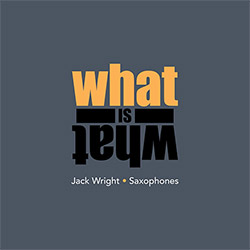




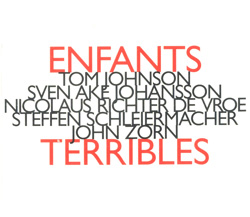

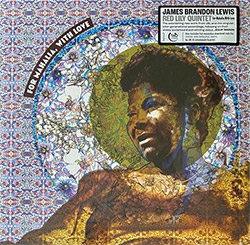
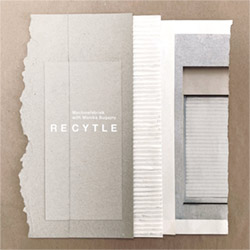

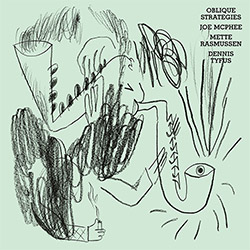
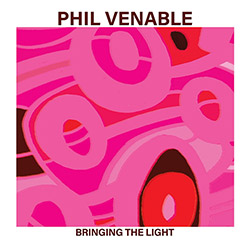

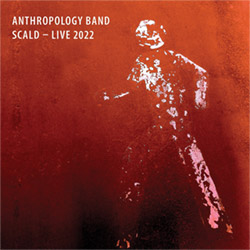
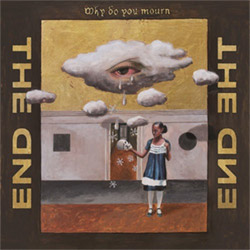
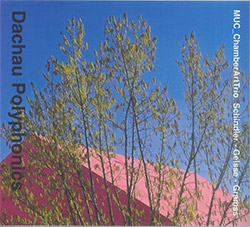
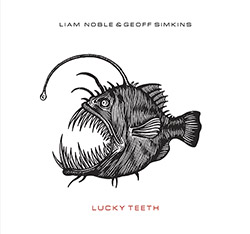
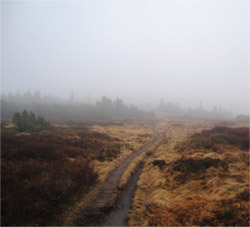
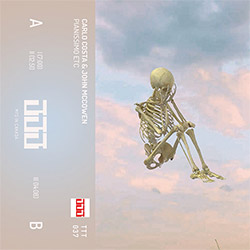
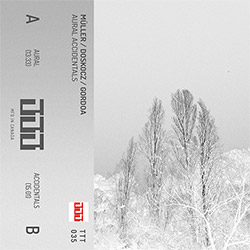
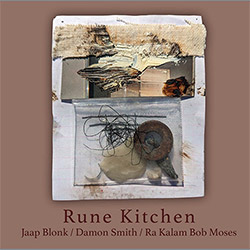
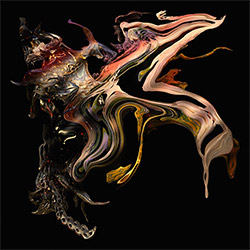
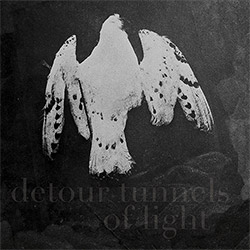
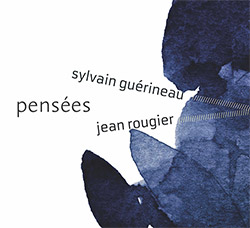
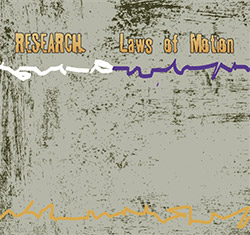










![Deupree, Jerome / Sylvie Courvoisier / Lester St. Louis / Joe Morris: Canyon [2 CDs]](https://www.teuthida.com/productImages/misc4/36404.jpg)


![Eternities: Rides Again [CASSETTE]](https://www.teuthida.com/productImages/misc4/36247.jpg)

![Lopez, Francisco: Untitled (2021-2022) [2 CDs]](https://www.teuthida.com/productImages/misc4/36438.jpg)




![Eventless Plot | Haarvol: The Subliminal Paths [CASSETTE + DOWNLOAD]](https://www.teuthida.com/productImages/misc4/36232.jpg)












![Eventless Plot | Francesco Covarino: Methexis [CASSETTE + DOWNLOAD]](https://www.teuthida.com/productImages/misc4/36231.jpg)



![Das B (Mazen Kerbaj / Mike Majkowski / Magda Mayas / Tony Buck): Love [VINYL]](https://www.teuthida.com/productImages/misc4/36329.jpg)



![Hemphill Stringtet, The: Plays the Music of Julius Hemphill [VINYL]](https://www.teuthida.com/productImages/misc4/36409.jpg)



![Halvorson, Mary Septet: Illusionary Sea [2 LPS]](https://www.teuthida.com/productImages/misc4/17952.jpg)






![Money : Money 2 [2 CDs]](https://www.teuthida.com/productImages/misc4/35894.jpg)




![Klinga, Erik: Elusive Shimmer [VINYL]](https://www.teuthida.com/productImages/misc4/36258.jpg)
![CHANGES TO blind (Phil Zampino): Volume 9 - I Wave on a Fine Vile Mist [CD + DOWNLOAD]](https://www.teuthida.com/productImages/misc4/36061.jpg)

![Wallmart / Rubbish: Asset Protection [split CD]](https://www.teuthida.com/productImages/misc4/35900.jpg)


![+Dog+: The Family Music Book Vol. 5 [2 CDs]](https://www.teuthida.com/productImages/misc4/35897.jpg)
![Kuvveti, Deli : Kuslar Soyledi [CASSETTE w/ DOWNLOAD]](https://www.teuthida.com/productImages/misc4/36107.jpg)

![Nakayama, Tetsuya: Edo Wan [CASSETTE w/ DOWNLOAD]](https://www.teuthida.com/productImages/misc4/36105.jpg)




![Yiyuan, Liang / Li Daiguo: Sonic Talismans [VINYL]](https://www.teuthida.com/productImages/misc4/35957.jpg)
![Brown, Dan / Dan Reynolds: Live At The Grange Hall [unauthorized][CASSETTE]](https://www.teuthida.com/productImages/misc4/36245.jpg)








![Palestine, Charlemagne / Seppe Gebruers: Beyondddddd The Notessssss [VINYL]](https://www.teuthida.com/productImages/misc4/36206.jpg)
![Palestine, Charlemagne / Seppe Gebruers: Beyondddddd The Notessssss [NEON GREEN VINYL]](https://www.teuthida.com/productImages/misc4/36207.jpg)

![Laubrock, Ingrid: Purposing The Air [2 CDs]](https://www.teuthida.com/productImages/misc4/35639.jpg)

![Yoko, Ono / The Great Learning Orchestra: Selected Recordings From Grapefruit [2 CDs]](https://www.teuthida.com/productImages/misc4/35841.jpg)









![Zorn, John / JACK Quartet: The Complete String Quartets [2 CDs]](https://www.teuthida.com/productImages/misc4/35609.jpg)

![Lonsdale, Eden: Dawnings [2 CDs]](https://www.teuthida.com/productImages/misc4/35480.jpg)



![Sorry For Laughing (G. Whitlow / M. Bates / Dave-Id / E. Ka-Spel): Rain Flowers [2 CDS]](https://www.teuthida.com/productImages/misc4/35985.jpg)

![Rolando, Tommaso / Andy Moor : Biscotti [CASSETTE w/ DOWNLOADS]](https://www.teuthida.com/productImages/misc4/36106.jpg)


![Electric Bird Noise / Derek Roddy: 8-10-22 [CD EP]](https://www.teuthida.com/productImages/misc4/35970.jpg)








![Elephant9 : Mythical River [VINYL]](https://www.teuthida.com/productImages/misc4/34624.jpg)



![Elephant9 with Terje Rypdal: Catching Fire [VINYL 2 LPs]](https://www.teuthida.com/productImages/misc4/35355.jpg)
![Deerlady (Obomsawin, Mali / Magdalena Abrego): Greatest Hits [VINYL]](https://www.teuthida.com/productImages/misc4/34876.jpg)







![Surplus 1980: Illusion of Consistency [CD]](https://www.teuthida.com/productImages/misc4/35069.jpg)
![Staiano, Moe: Away Towards the Light [VINYL + DOWNLOAD]](https://www.teuthida.com/productImages/misc4/35037.jpg)
![Coley, Byron: Dating Tips for Touring Bands [VINYL]](https://www.teuthida.com/productImages/misc4/17906.jpg)

![Lost Kisses: My Life is Sad & Funny [DVD]](https://www.teuthida.com/productImages/misc4/lostKissesDVD.jpg)